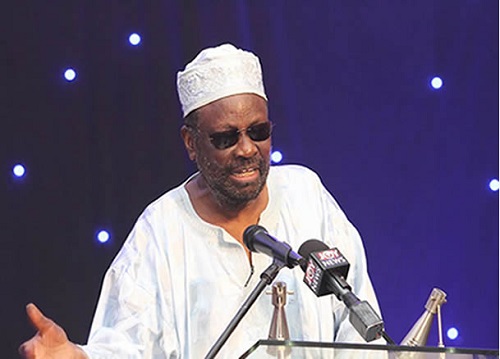The disasters that befell me whilst I was writing the English Language paper of the General Certificate of Education (GCE) at the Ordinary Level in Accra convinced me that I had “busted” [or as we put it in mocking Twi, “mapae”] the entire examination.
For, I might have survived the vomiting unto my written work. But what about the confusion about the identity of the exam centre, caused by the lady invigilator? And her making us believe we’d been given some “extra” time when no such “bounty” had been bestowed on us!
Back at Asiakwa, I didn’t confide my fears to any of my friends. For we all knew that people went to great lengths to explain away why they had “paee’d” an exam. I wasn’t going to be counted among such people, even to Mr. Asamoah and Mr. Ettoh – my great supporters at Asiakwa. I merely shrugged when asked how the exam had gone: “Some of the questions were not what was anticipated by me, but I did my best” was all that I would say.
Decent as they were, they did not pry. If I flunked, they would know that you cannot prepare for all the possible questions in any exam. It was a lottery game: if you were lucky, you won; if you weren’t, you lost. Better than going into paroxysms of lengthy explanation about koko shooting out of one’s mouth like a galactic eruption and incinerating an essay one had beautifully laboured to write.
I must admit, though, that I became a shadow of myself. No longer the fun-loving, happy-go-lucky and self-confident creature that PEA classes and Mr. Asiamah’s praise had created, I went about life quite listless, not knowing what tomorrow would bring.
It was reading that came to my rescue. My friends at the Takoradi Secondary Technical School had introduced me to Wide World Magazine, which was devoted to adventurous stories from all over the world. Furthermore, a library had just been opened at the Kyebi Community Centre, and I could go there and borrow novels to read.
My favourite writers were Leslie Charteris (author of The Saint novels) and Bruce Graeme, whose hero, Blackshirt, took me on many nocturnal adventures.
Both writers had a racy, simple-to-grasp style which appealed to me strongly, and traces of which can be found in my own writing by the analytical reader.
Reading a lot created an urge in me to write something myself. I started off by writing a Letter to the Editor of the Daily Graphic in which I discussed foreign events, as reported by the BBC and in a lesser capacity, by the Graphic itself. In one instance, I challenged the London Correspondent of the Graphic, who had written a report in which he had made it appear as if the entire British press had supported a punishment meted to Archbishop Makarios, in Cyprus, by the British Government.
I had the cheek to point out that the BBC programme, From the Editorials, had shown that the Daily Herald, the Manchester Guardian and the News Chronicle had criticised the British Government action against Makarios. What did the intelligentsia who read the Daily Graphic make of such esoteric discourses appearing under the signature of one “M C Duodu, Asiakwa”? I didn’t care!
I even postulated, in another letter, what foreign policy we should pursue when we gained our independence! It is greatly to the Daily Graphic of the early 1950s that it opened its pages to “eccentric” contributions of that nature as legitimate subjects of public discourse. Who was to know that from such beginnings would begin a love for writing, in me, that would eventually catapult me to the editorship of the Daily Graphic itself, as well as other organs?
For I didn’t limit my literary contributions to the Graphic. I also discovered that the Gold Coast Broadcasting Service ran a short story, or poem, or other literary piece in its programme, The Singing Net.
Applying the readable techniques that I had absorbed from Leslie Charteris and Bruce Graeme, I created a fictional character called “Tough Guy” and set him loose on the night life of Takoradi, in the story, Tough Guy In Town.
Not only was the story broadcast; it was paid for! (Six Guineas [six pounds and six shillings] or was it three guineas? In either case, the sum was not to be frowned upon by someone whose previous earnings had amounted only to seven pounds a month, that is – a pupil teacher’s salary!
The man who produced Tough Guy In Town, Henry Swanzy (ex-BBC and seconded to be head of programmes at the GBC) liked this first-ever fictional story of mine so much that he included it in an Anthology he later published of literary material broadcast by the GBC: Voices of Ghana.
At around this time, I discovered that a new magazine had appeared on the market called New Nation. It was a general purpose magazine and one of the articles, written by a staff writer, Peter Barker, struck me so much that I wrote to him, offering to write regularly for the paper on issues we would agree should be covered.
Peter Barker invited me to come to Accra for an interview. I met both Barker and his boss, and publisher of the paper, David Smithers. I found both men to be very nice and full of the Christian spirit, and jumped at the chance, when it was offered, to become a junior reporter on the paper. They didn’t mind the fact that I was still waiting for the results of the GCE examination I’d taken a few months ago.
By CAMERON DUODU


